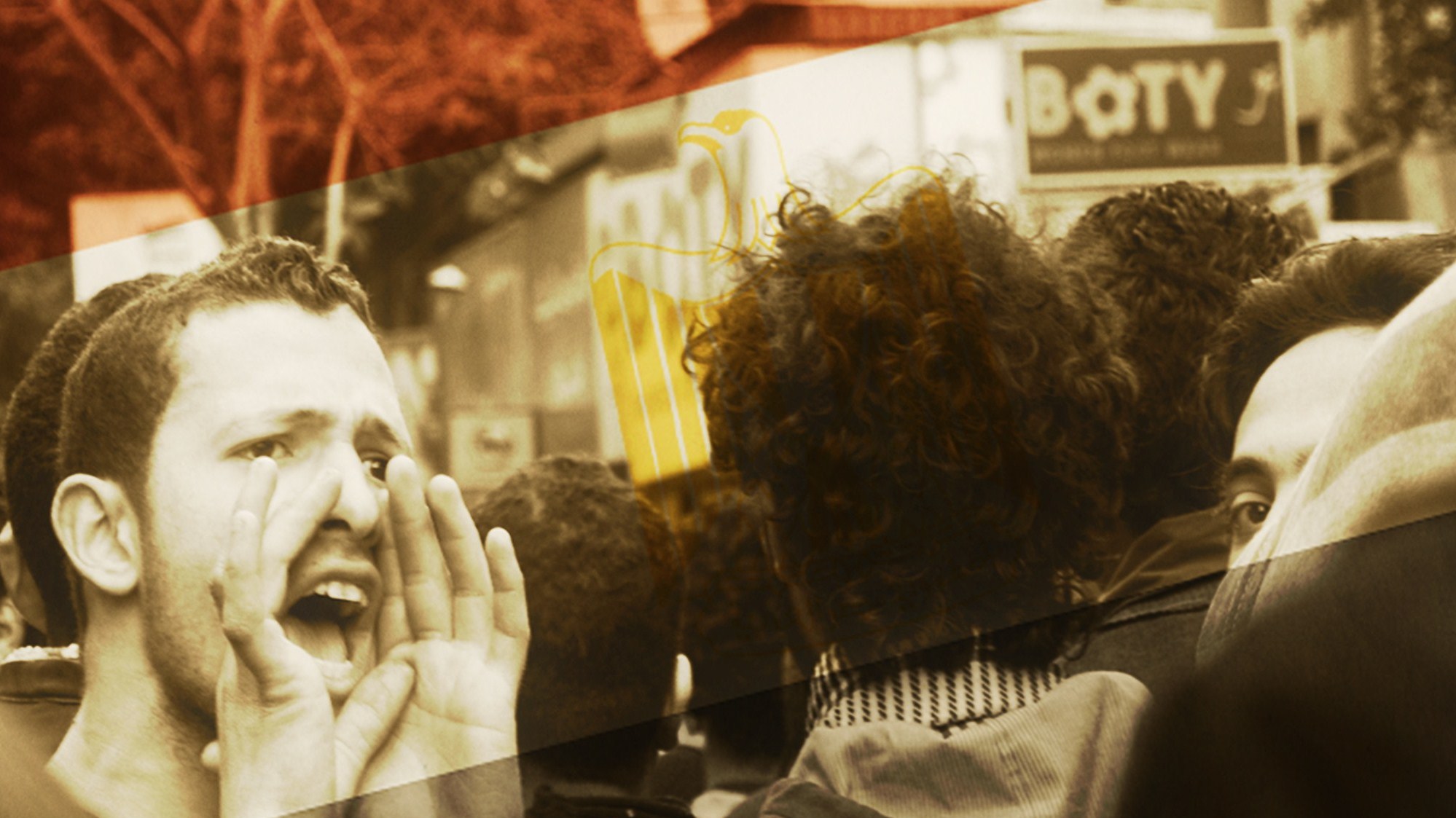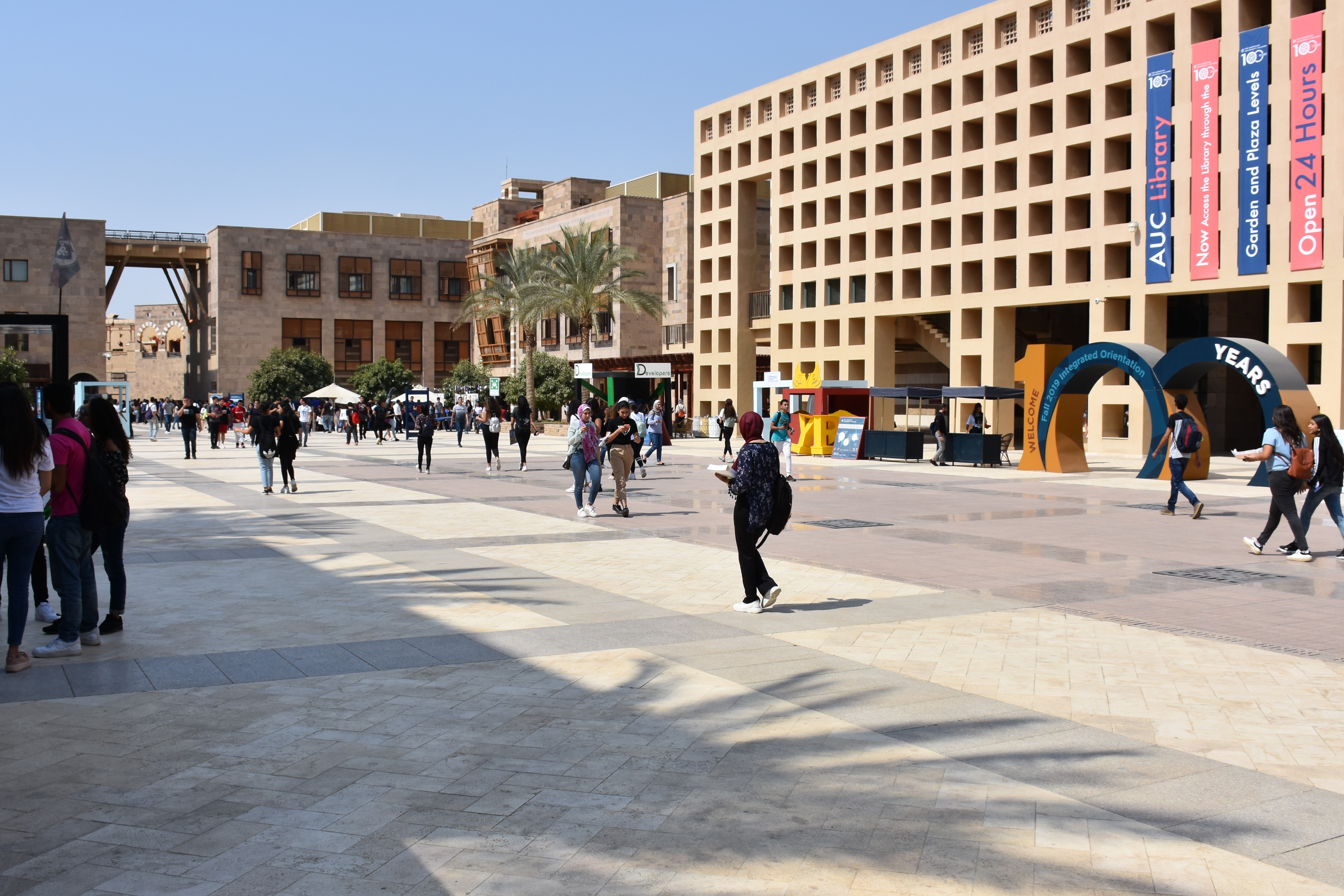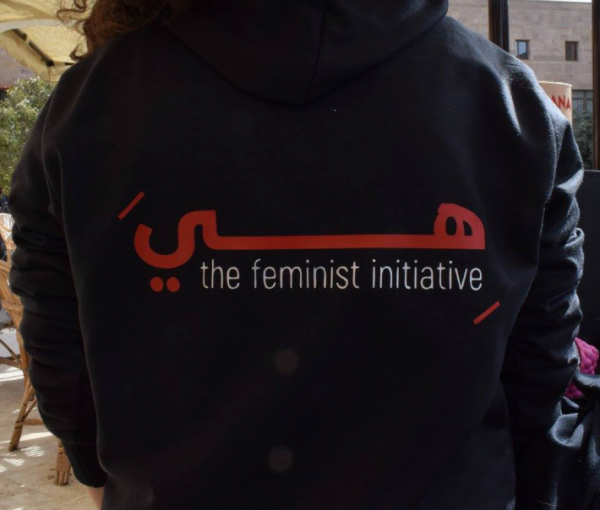Is Egypt Moving Forward?
BY MARIAM MOHSEN AND RAGIA MOSTAFA
Most Egyptians are expressing increased concern about the future of their country. Every day, people are dying in traffic and other accidents because of negligence and the crime rate is steadily rising. Citizens are scared, worried, upset and running out of patience.
The Caravan surveyed 250 AUCians and asked what they believed to lie in the country’s future. The choices were political and economic stability, continued instability, civil war or a military coup. Some 13.2 per cent said they thought political and economic stability would prevail, while 15.6 percent believed a military coup would take place and topple the regime.
![Many Egyptians say there has been no progress since Morsi took office [MARINA LOUIS]](http://www.auccaravan.com/wp-content/uploads/2013/05/574983_10150839207961047_1670989062_n-300x168.jpg)
But the majority of those surveyed – 49.6 percent – said they are expecting continued instability.On the streets of Cairo, however, and in cafés, offices, university compounds, and private homes, the current Egyptian constitution appears to continue to be of major concern to many despite a referendum at the beginning of the year that saw it pass.
According to lawyer Mustapha Hussein, the new constitution turns Sunni Islam’s highest religious institution Al Azhar into a political organization. It also maintains a provision for a new emergency law; legalizes child labor and marginalizes women and minorities.
“The constitution is very well written to be convincing,” Hussein says, “and it is written with clauses saying we have to love the country and the Nile and all. But once you flip a few pages, you reach a point where you want to cry.”
Hussein says there are clauses that allow the police to operate with impunity much like the Ministry of Interior during the Mubarak era. There are other clauses that give the president immunity and minimize legislative powers, leaving them in the hands of the president’s office.
Over the course of the past semester, The Caravan’s staff conducted numerous interviews with workers, politicians, academics, street vendors, taxi drivers, machine operators and café waiters. For most, the most persistent problem facing Egypt was the lack of leadership.
Many Egyptians say that almost a year into his presidency, Mohamed Morsi has done little to fix the country’s growing problems or move it forward.
“He isn’t fixing any problems or deficits; the country is falling apart while he is talking about Gaza and Israel. Economically, we’re lagging behind, the tourism industry is dead and he isn’t doing much to revive it,” says Sarah Saad, AUC alumna and economist.
The staggering losses in the hard-hit tourism industry have been bitter pills to swallow for many Egyptians. Before the January 25, 2011 populist uprising, Egypt was one of the most popular destinations for millions of European, North American and Asian visitors.
Now, the pyramids, the Museum and Khan El Khalili are nearly bereft of tourists; in fact, in places like Hurghada, Alexandria and Mersa Matrouh, for example, you would be hard-pressed to find the numbers that once festooned Egypt’s hot spots.
Tourists are scared to come to Egypt, too worried about their safety, and with accounts of sexual harassment spreading virally on a daily basis, tourists are going elsewhere.
“The government is not doing anything to promote tourism or encourage people to come visit. There is a new crisis every day that discourages people from coming to our lovely country,” says Nihal Adam, a tour guide.
Adam described how those who run shops in the Khan El Khalili and around the pyramids are losing hope, losing income and influx of money. “They cannot live the way they used to anymore, they don’t have the same standard of living,” she says.
While the loss of tourism revenue has left Egypt’s economy cash-strapped, inflation has been slowly seeping in; petrol, gas, bottled water, food staples and other necessary goods have gradually become more expensive.
On the other hand, there are quite a few who think Morsi and his administration are doing a wonderful job. These people blame the country’s strife on the media, its editorializing and the demonstrators.
Saad Elshater, an AUC business graduate, thinks people should give Mohamed Morsi a chance. “Nobody sees political stability in the near future,” he says, “it is absolutely natural for there to be turmoil when we’re undergoing a political change.”
Elshater says he thinks all the parties and political players that exist now just want to get their ideas and ideologies across and will not be satisfied with whatever is presented.
“Every side is trying to seem better than its opponent,” he says.
According to Elshater, we can evaluate in four years whether or not Morsi is good. Everyone thinks he is not, which is normal. “But,” elaborates Elshater, “we should give him a chance and see.”
He added that Egyptians do not have the culture of agreeing to disagree. Each side of the coin is insulting the other using different media outlets just because they do not think the same way.
“On the short term,” he says, “things are not looking very well- economically. But on the long term, we are working on improving several fields and the problem is that people are only looking at the short term perspective.”
He added that there is surely potential for Egypt to be one of the top growing economies and that it is illogical to think otherwise just because the dollar price is on the rise.
“I am not saying the Muslim Brotherhood administration is great and perfect, that would be extreme,” he says, “but the people who say they are failing because of all the accidents are equally extreme.”
He elaborates that Morsi is not responsible for all the accidents throughout the country and that it is absurd to say he is a failure because of accidents that out of his hands. He says that there is actual responsibility and political responsibility and explains saying that trains and buses are not efficient or functioning from the days of the old regime.
He explained that Mohamed Morsi is only politically responsible but that he is not actually responsible for the flaws in the system.
“The rate of accidents and fatalities is still the same as in the Mubarak era, it’s just really exaggerated and editorialized now,” he says.
“Mohamed Morsi is not Superman. He is not going to press a button that makes everything okay,” Elshater says.
Ali AbdelKerim, a driver, said that he is quite happy that Morsi was elected president. He voted for Morsi in the first and second rounds and says that he by no means regrets it.
AbdelKerim explains that he is happy that we now have a president who fears the wrath of God and prays. “Look at his wife, even she looks much more devout than Suzanne Mubarak ever did,” he said.
Graduating senior Ibrahim El Wardany believes that possible reasons behind the country’s economic decline are the ongoing protests and instability.
“There are many projects such as the Samsung factory, the industrial city in Turkey, the development of the Aswan Dam, and so forth, that will not stabilize until there is a people’s assembly and the people stop protesting,” he said.
He explained that another reason behind the country’s current condition is that the opposition simply opposes any decision without proposing any alternatives.
“With the attitudes of the current opposition, I doubt that the country will get anywhere. Both parties have to compromise and find common grounds,” adds El Wardany.
Meanwhile, with a lack of political compromise continuing to dominate, Egypt also appears to lack the resources to meet the energy needs of its populace; there have been numerous power cuts that appear to signal the coming summer will be plagued with blackouts as millions turn on their power-guzzling air conditioners.
The most recent power cut to strike AUC in April lasted six hours, delaying student work and exams.
Mohamed Abo Hamed, a former member of the now dissolved parliament, is not optimistic about where the country is heading.
“The Muslim Brotherhood has proved to be incapable of managing the country. If they stay in power, the country’s condition will continue to deteriorate,” he says.
Abo Hamed added that catastrophes such as a civil war, division of the country as in the Sudanese case, a revolution of the hungry, or sectarian violence, are all likely scenarios should the Brotherhood remain in power.
He used examples such as the Suez Canal deal to prove that the Brotherhood worked for their own benefit.
According to the Daily News Egypt, Suez Canal revenues have become more important because the country’s foreign currency reserves have shrunk from $36 billion on the eve of the 2011 uprising to just $13.5 billion. Egyptian delegations have been trying to secure loans and investments from allies and trade partners.
Russia recently declined to provide Egypt with a requested $2 billion loan. However, Libya, Saudi Arabia and Qatar have stepped in to provide financial assistance. Qatar has reportedly given Egypt more than $5 billion in loans and investments in the past year.
In one of his interviews with Al Jazeera, President Morsi denied any rumoured deals regarding Qatari investment and/or ownership of the Suez Canal. According to the Suez Canal Authority, Egypt made $398.5 million in March alone.
“The deal was made for the benefit of Qatar and also to provide a shelter free from state monitoring, which facilitates the process of money laundering,” said Abo Hamed.
“The country will only develop when a nationalistic President assumes power and applies the principles of the revolution successfully,” says Abo Hamed.
But El Wardany believes that the source of inefficacy is a lack of communication between those who are running the country, which he says causes many problems for the president.
“The Brotherhood isn’t really in control of the country. The president can’t reach out to the judiciary, the police, the intelligence agency, and so forth,” he says.
“Even if Morsi is removed, the population will never reach consensus on a specific individual. Also, there are remnants of the old regime that are working against Morsi. Even if anyone comes to work for the country’s true benefit, these people will still oppose him rather than give an honest opinion.”



